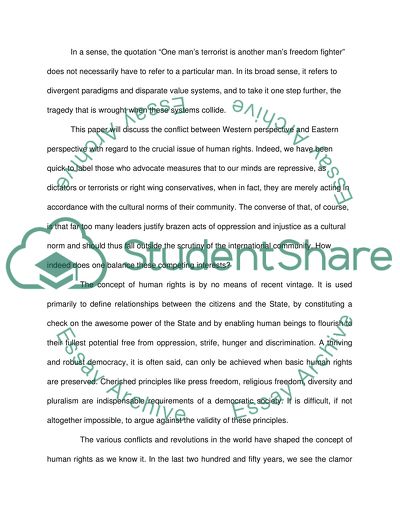Cite this document
(“One mans terrorist is another mans freedom fighter Essay”, n.d.)
Retrieved from https://studentshare.org/politics/1503209-human-rights-essay
Retrieved from https://studentshare.org/politics/1503209-human-rights-essay
(One Mans Terrorist Is Another Mans Freedom Fighter Essay)
https://studentshare.org/politics/1503209-human-rights-essay.
https://studentshare.org/politics/1503209-human-rights-essay.
“One Mans Terrorist Is Another Mans Freedom Fighter Essay”, n.d. https://studentshare.org/politics/1503209-human-rights-essay.


